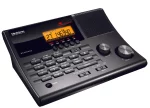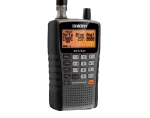Police scanners have long intrigued the public, offering a glimpse into the fast-paced world of law enforcement, firefighting, and emergency medical services. Listening to these transmissions can provide valuable insights during local emergencies, storms, or public safety events. However, there are legal and ethical considerations to keep in mind. This guide will walk you through the basics of police scanners, how to listen to them legally, and how to do so responsibly.
What Are Police Scanners?
Police scanners are radio receivers that pick up frequencies used by law enforcement, fire departments, EMS, and other public safety organizations. These devices, or apps that emulate them, allow individuals to monitor real-time communications.
Modern scanners are highly advanced, often capable of decoding trunked and digital systems, which many agencies use to organize their communications efficiently. These systems help ensure critical messages get through, even in chaotic situations.
Is Listening to Police Scanners Legal?
In most countries, listening to public safety communications is legal as long as the transmissions are not encrypted. However, the legality can vary depending on how and where you listen:
- At Home:
- Listening to unencrypted police communications at home is generally legal in the United States and many other countries.
- Be mindful of local laws, as some jurisdictions may have restrictions.
- In Your Vehicle:
- Some states in the U.S., such as Indiana and Kentucky, prohibit the use of police scanners in vehicles unless you are a licensed amateur radio operator (HAM radio) or a member of a recognized media organization.
- Using Apps and Online Feeds:
- Many people prefer listening to police transmissions via apps or websites that stream scanner frequencies. While the apps themselves are legal, streaming or rebroadcasting police communications in some situations may be restricted.
- During Criminal Activity:
- Using a scanner to aid in committing a crime is illegal everywhere. Doing so can result in enhanced penalties if caught.
How to Get Started with a Police Scanner
Here’s how you can dive into the world of police scanners legally and responsibly:
1. Choose the Right Scanner
- Traditional Handheld/Desk Scanners: Ideal for hobbyists who want to monitor a wide range of frequencies.
- Mobile Apps: Platforms like Broadcastify allow you to listen without needing physical equipment.
- Digital and Trunking Scanners: Necessary if your local agencies use these systems. Research your local area’s communication setup to determine compatibility.
2. Learn the Codes and Jargon
- Police and emergency services often use codes to relay information quickly.
- Familiarize yourself with common codes, such as 10-4 (acknowledgment) or 10-20 (location), and agency-specific terms.
3. Program Your Scanner
- Manually input frequencies for local agencies or download preprogrammed channels if your scanner supports it.
- Many online resources, such as RadioReference.com, provide updated frequency databases.
Listening Responsibly
Being a responsible listener ensures you respect the work of emergency responders while also staying on the right side of the law:
1. Avoid Interfering
- Never attempt to communicate on police or public safety frequencies—it’s illegal and disrupts vital operations.
2. Maintain Privacy
- Do not share sensitive information you hear, such as the names of individuals involved in incidents or private addresses. Broadcasting this information could violate privacy laws.
3. Keep it Ethical
- Avoid listening to police scanners for sensational or exploitative reasons. Instead, focus on using the information for awareness or safety.
4. Stay Updated on Laws
- Laws regarding scanner use can change. Check your local regulations regularly to ensure compliance.
5. Prepare for Emergencies
- Use your scanner to stay informed during disasters or major events, but always prioritize following official evacuation or safety instructions.
Conclusion
Police scanners offer an invaluable window into the critical work of public safety professionals. By listening legally and responsibly, you can gain insights into your community’s safety operations while respecting the privacy and integrity of those involved. Whether you’re a curious hobbyist or someone seeking information during emergencies, staying informed about the rules and best practices is essential.
With the right tools and an ethical mindset, police scanner enthusiasts can become better-informed members of their communities.


